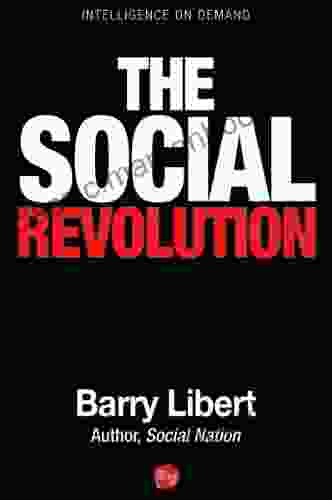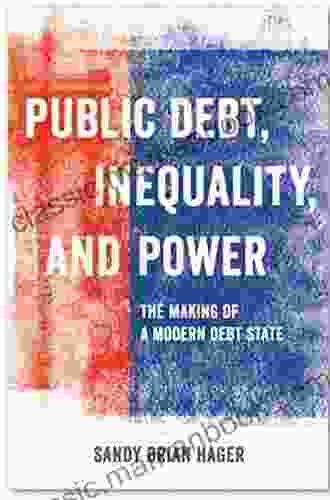The Making of the Modern Debt State: A Long and Winding Road

The history of debt is long and winding, stretching back to the earliest civilizations. In the ancient world, debt was often used to finance wars and other large-scale projects. In the Middle Ages, debt was used to fund the Crusades and the construction of cathedrals. And in the early modern period, debt was used to finance the exploration and colonization of the New World.
4.1 out of 5
| Language | : | English |
| File size | : | 10644 KB |
| Text-to-Speech | : | Enabled |
| Screen Reader | : | Supported |
| Enhanced typesetting | : | Enabled |
| Word Wise | : | Enabled |
| Print length | : | 176 pages |
| Lending | : | Enabled |
In the modern world, debt has become a central part of the global economy. Governments, businesses, and individuals all rely on debt to finance their activities. But how did we get to this point? How did debt become so central to our lives?
The answer to this question is complex, but it can be traced back to a number of factors. One factor is the rise of capitalism. Capitalism is an economic system based on the private ownership of property and the pursuit of profit. In a capitalist system, debt is essential for businesses to grow and expand.
Another factor that has contributed to the rise of the modern debt state is the growth of the welfare state. The welfare state is a system of government programs that provides social benefits to citizens. These programs include social security, unemployment insurance, and healthcare. The welfare state has helped to create a safety net for citizens, but it has also led to a significant increase in government debt.
Finally, the rise of the modern debt state has been fueled by a number of financial innovations. These innovations include the development of new financial instruments, such as bonds and derivatives. These instruments have made it easier for governments and businesses to borrow money.
The modern debt state is a complex and multifaceted phenomenon. It is the product of a number of historical, economic, and political factors. The debt state has had a profound impact on our lives. It has helped to finance wars, build infrastructure, and provide social benefits. But it has also led to a number of problems, such as financial crises and inequality. As we move into the future, it is important to understand the history and nature of the debt state so that we can make informed decisions about how to manage it.
The Origins of Debt
The origins of debt can be traced back to the earliest civilizations. In ancient Mesopotamia, debt was used to finance wars and other large-scale projects. The Code of Hammurabi, one of the earliest known legal codes, contains a number of provisions relating to debt. These provisions include rules on interest rates, loan defaults, and debt slavery.
In the ancient world, debt was often used as a form of punishment. For example, in ancient Greece, debtors could be enslaved if they were unable to repay their debts. In ancient Rome, debtors could be thrown into prison or sold into slavery.
The concept of debt has evolved over time. In the Middle Ages, debt was seen as a sin. The Church taught that it was wrong to charge interest on loans. This view was based on the belief that money was sterile and that it could not produce more money. As a result, lending money at interest was seen as a form of usury.
The Protestant Reformation challenged the Catholic Church's view of usury. Protestants argued that it was not wrong to charge interest on loans. This view helped to pave the way for the development of the modern banking system.
The Rise of the Modern Debt State
The modern debt state emerged in the early modern period. This period saw the rise of capitalism and the growth of the welfare state. Capitalism is an economic system based on the private ownership of property and the pursuit of profit. In a capitalist system, debt is essential for businesses to grow and expand.
The welfare state is a system of government programs that provides social benefits to citizens. These programs include social security, unemployment insurance, and healthcare. The welfare state has helped to create a safety net for citizens, but it has also led to a significant increase in government debt.
The rise of the modern debt state has been fueled by a number of financial innovations. These innovations include the development of new financial instruments, such as bonds and derivatives. These instruments have made it easier for governments and businesses to borrow money.
The modern debt state is a complex and multifaceted phenomenon. It is the product of a number of historical, economic, and political factors. The debt state has had a profound impact on our lives. It has helped to finance wars, build infrastructure, and provide social benefits. But it has also led to a number of problems, such as financial crises and inequality. As we move into the future, it is important to understand the history and nature of the debt state so that we can make informed decisions about how to manage it.
The Future of the Debt State
The future of the debt state is uncertain. Some experts believe that the debt state will continue to grow. Others believe that the debt state will eventually collapse. The truth is probably somewhere in between.
The debt state is a product of our economic system. As long as we continue to rely on debt to finance our activities, the debt state will continue to exist. However, it is important to remember that debt is not a free lunch. There is always a cost to borrowing money. The cost of borrowing money is interest. Interest is a payment that we make to lenders for the use of their money.
If we continue to borrow money at an unsustainable pace, we will eventually reach a point where we can no longer afford to pay the interest on our debt. This will lead to a debt crisis. A debt crisis can have a devastating impact on the economy. It can lead to a loss of confidence in the financial system, a decline in economic growth, and an increase in unemployment.
There are a number of things that we can do to avoid a debt crisis. One is to reduce our reliance on debt. We can do this by saving more money and by investing in productive assets. Another is to reduce our spending. We can do this by cutting back on unnecessary expenses and by living below our means. Finally, we can increase our income. We can do this by getting a better education, by working harder, and by starting a business.
The future of the debt state is in our hands. We can choose to continue to rely on debt, or we can choose to reduce our reliance on debt. The choice is up to us.
4.1 out of 5
| Language | : | English |
| File size | : | 10644 KB |
| Text-to-Speech | : | Enabled |
| Screen Reader | : | Supported |
| Enhanced typesetting | : | Enabled |
| Word Wise | : | Enabled |
| Print length | : | 176 pages |
| Lending | : | Enabled |
Do you want to contribute by writing guest posts on this blog?
Please contact us and send us a resume of previous articles that you have written.
 Top Book
Top Book Novel
Novel Fiction
Fiction Nonfiction
Nonfiction Literature
Literature Paperback
Paperback Hardcover
Hardcover E-book
E-book Audiobook
Audiobook Bestseller
Bestseller Classic
Classic Mystery
Mystery Thriller
Thriller Romance
Romance Fantasy
Fantasy Science Fiction
Science Fiction Biography
Biography Memoir
Memoir Autobiography
Autobiography Poetry
Poetry Drama
Drama Historical Fiction
Historical Fiction Self-help
Self-help Young Adult
Young Adult Childrens Books
Childrens Books Graphic Novel
Graphic Novel Anthology
Anthology Series
Series Encyclopedia
Encyclopedia Reference
Reference Guidebook
Guidebook Textbook
Textbook Workbook
Workbook Journal
Journal Diary
Diary Manuscript
Manuscript Folio
Folio Pulp Fiction
Pulp Fiction Short Stories
Short Stories Fairy Tales
Fairy Tales Fables
Fables Mythology
Mythology Philosophy
Philosophy Religion
Religion Spirituality
Spirituality Essays
Essays Critique
Critique Commentary
Commentary Glossary
Glossary Bibliography
Bibliography Index
Index Table of Contents
Table of Contents Preface
Preface Introduction
Introduction Foreword
Foreword Afterword
Afterword Appendices
Appendices Annotations
Annotations Footnotes
Footnotes Epilogue
Epilogue Prologue
Prologue Scot Danforth
Scot Danforth Dr Anjana Warrier
Dr Anjana Warrier Stephany Wallace
Stephany Wallace Christian Jacq
Christian Jacq Damtew Teferra
Damtew Teferra Wolf Dieter Hellberg
Wolf Dieter Hellberg Daniel Hall
Daniel Hall Writing On The Wall
Writing On The Wall Christopher Kennedy
Christopher Kennedy Shara Mccallum
Shara Mccallum Vidyan Ravinthiran
Vidyan Ravinthiran Melvic O Sosa
Melvic O Sosa I D Blind
I D Blind Arthur Brooke
Arthur Brooke David Throop
David Throop Barbara Swell
Barbara Swell Wayne Rohde
Wayne Rohde Brynne Asher
Brynne Asher Diane Tavenner
Diane Tavenner Carmen Aguirre
Carmen Aguirre
Light bulbAdvertise smarter! Our strategic ad space ensures maximum exposure. Reserve your spot today!

 F. Scott FitzgeraldHaikyuu!!, Vol. 18: Hope Is a Waxing Moon Review: An Enthralling Continuation...
F. Scott FitzgeraldHaikyuu!!, Vol. 18: Hope Is a Waxing Moon Review: An Enthralling Continuation... Christian CarterFollow ·14.6k
Christian CarterFollow ·14.6k Mario SimmonsFollow ·11.1k
Mario SimmonsFollow ·11.1k Ezekiel CoxFollow ·6k
Ezekiel CoxFollow ·6k Mason PowellFollow ·13.7k
Mason PowellFollow ·13.7k T.S. EliotFollow ·19k
T.S. EliotFollow ·19k Robert ReedFollow ·11.8k
Robert ReedFollow ·11.8k Asher BellFollow ·14.5k
Asher BellFollow ·14.5k Charles ReedFollow ·8k
Charles ReedFollow ·8k

 Bryan Gray
Bryan GrayCello Alternativo: Exploring Contemporary Pizzicato...
: Embracing the Avant-Garde Within...

 Victor Hugo
Victor HugoThe Social Revolution: Barry Libert's Vision for a More...
In a world where...

 Tony Carter
Tony CarterA Comprehensive Guide to Crafting Clear and Effective Job...
A job description is a critical tool...

 Deacon Bell
Deacon BellSelected Poems And Prose Lorenzo Da Ponte Italian Library
Lorenzo Da Ponte, born...

 Francisco Cox
Francisco CoxWhat You Need To Know About Opportunity Cost: A...
Opportunity cost is a fundamental concept...

 Bill Grant
Bill GrantWhy Our Kids With Behavioral Challenges Are Falling...
Every year,...
4.1 out of 5
| Language | : | English |
| File size | : | 10644 KB |
| Text-to-Speech | : | Enabled |
| Screen Reader | : | Supported |
| Enhanced typesetting | : | Enabled |
| Word Wise | : | Enabled |
| Print length | : | 176 pages |
| Lending | : | Enabled |










